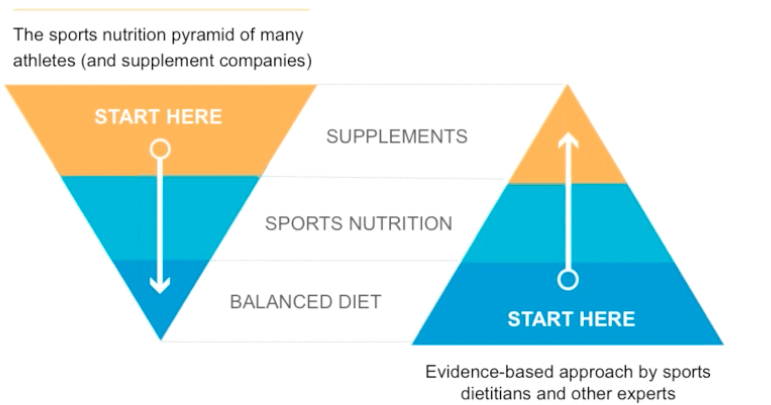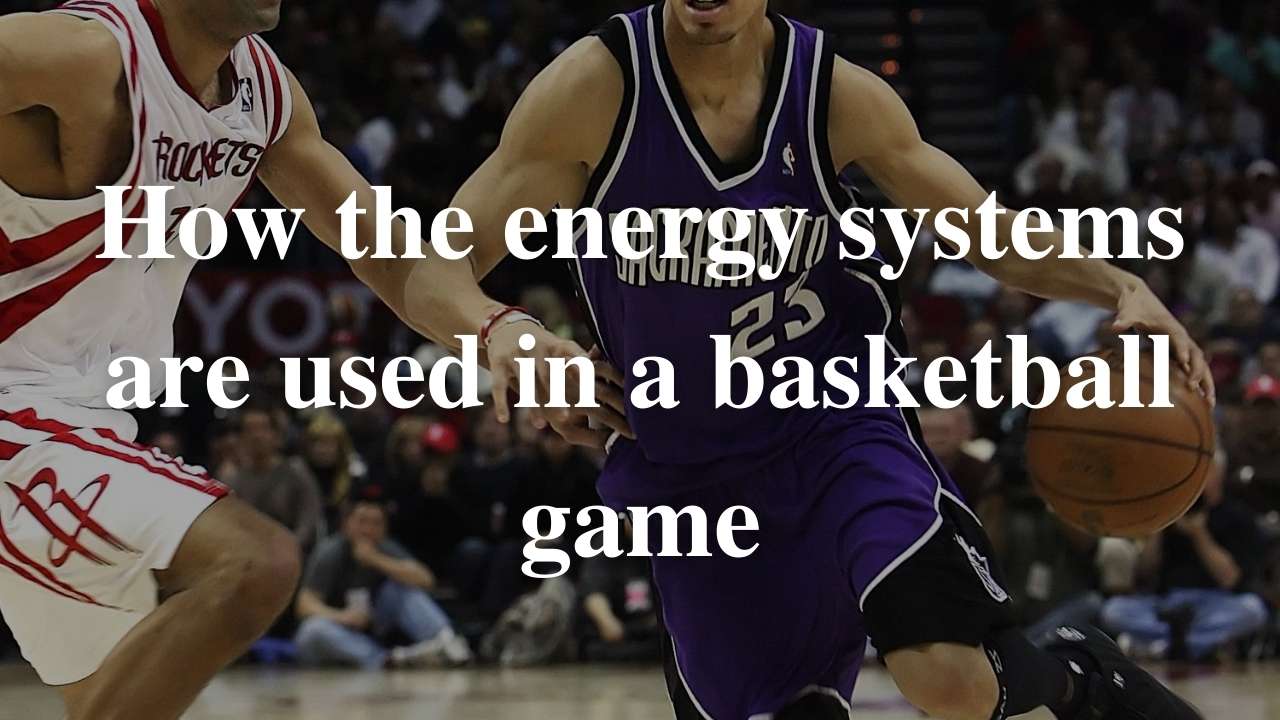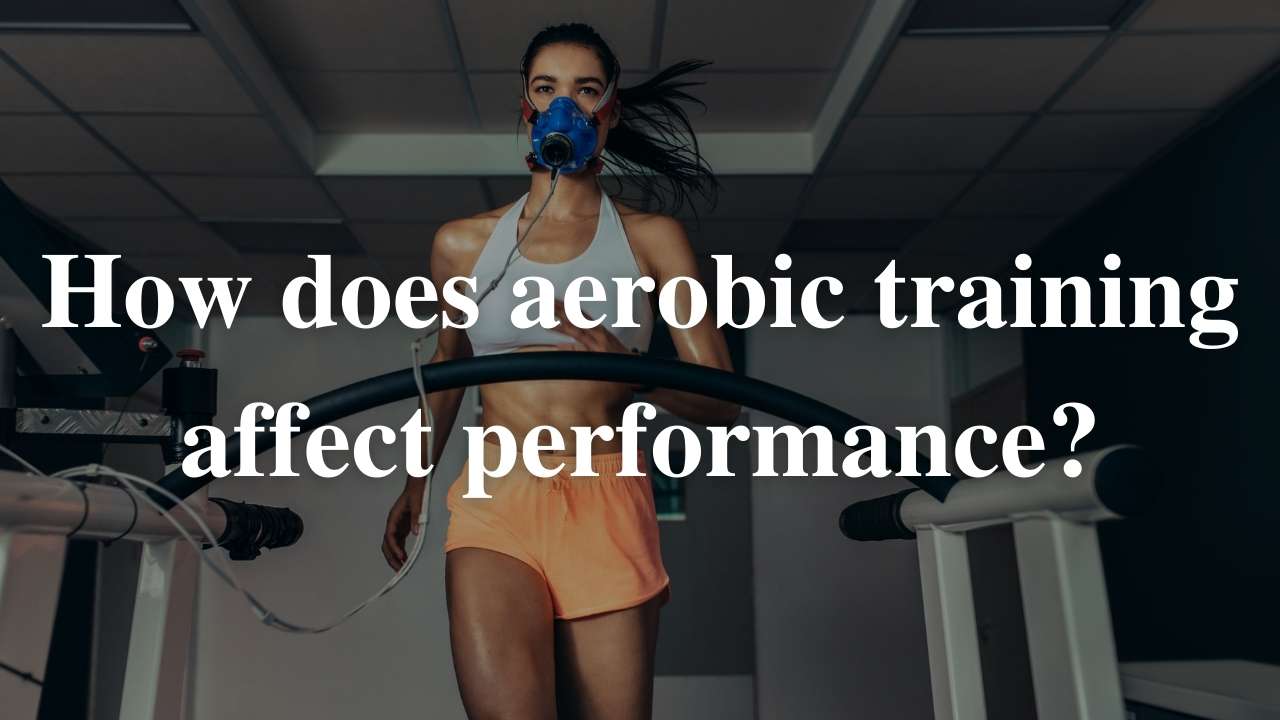Nutrition and supplementation were the subject of a recent presentation I did at the ACHPER Stage 6 conference. Now that I have presented, I wanted to write an article that looked at just one (1) image that I used in my presentation – the sports nutrition pyramid (see above).
I came across this image during a webinar run by Sports Dietitians Australia and it presents two (2) pyramids showing the relative importance given to nutrition and supplementation by athletes and supplement companies, and compares this with the evidenced based approach. It is clear that many athletes and supplement companies try to promote or use supplements as a quick fix, or as something that can replace nutrition, however, the evidence is very much not in favour of this approach.
The evidence surrounding nutrition and supplementation in sport indicates that an athlete must first have a balanced diet, before sports nutrition is considered and then supplementation is used sparingly to help provide the edge. To expand on this I want to provide a brief paragraph on each section of the pyramid.
First, a balanced diet is one that provides all the nutrition required by the body. For an athlete this is more of basically everything compared to a non-athlete. More vitamins and minerals, more water, carbohydrates, protein and fats. A balanced diet will have plenty of fruit and vegetables!! This can’t be emphasised enough. Vegetables should be consumed as much as possible in a balanced diet, they provide huge amounts of macro and micro nutrients, which are majorly beneficial to health. Seeds, nuts, legumes etc are also an important part of a balanced diet. Meat, dairy and grains (bread etc) become less important in a balanced diet, but of course are a regular part for most people. Fats are also beneficial for health. You body needs fat to survive. Your brain and nervous system are mostly fat and many good nutrients are stored or transported by fat.
Check out Nick Broad (Head of Science & a Nutritionist) from Chelsea below.
Sports nutrition is second in the pyramid. This is the extra nutrients required because they are training and performing. This includes more: antioxidants, B-vitamins, carbohydrates, protein, and good fats. It will also include hydration needs. Depending on the sport it will include carbohydrate loading, sports drinks, timing of protein and carbohydrate consumption and much more. Sports nutrition is the nutrition that is specifically for sport on top of a balanced diet. If the athlete’s diet is not balanced, then this extra nutrition, will be used to promote health and the performance benefits will not be as great.
Finally, supplementation. Supplementation in sport should only be used under guidance from a health professional, preferably a sports dietitian, a nutritionist or someone with a similar qualification. This is not because supplementation is generally dangerous, but so that the athlete knows the right supplement to take, when to take it, how much to take, and how it works. This then allows the supplement to provide the greatest benefit possible. This kind of supplementation might include protein shakes around resistance training to improve recovery and timing of protein consumption. It could include the use of creatine by an athlete looking to increase strength and muscle mass. Or it may include taking an iron supplement around menstruation to increase red blood cells. Regardless, supplementation is used as the tip (in small amounts, where appropriate) not as the base (in large amounts instead of healthy eating).
Nutrition and supplements are useful for performance and recovery provided they are done the right way around.






